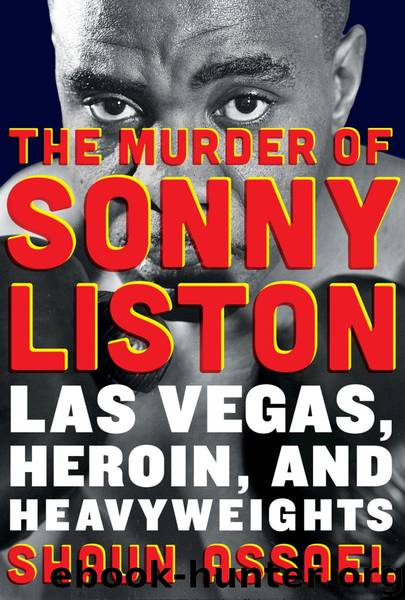The Murder of Sonny Liston by Shaun Assael

Author:Shaun Assael
Language: eng
Format: epub
Publisher: Penguin Publishing Group
Published: 2016-09-28T17:15:27+00:00
10.
ATLANTA
While Clark County voters were going to the polls on September 1, Muhammad Ali left his home in Philadelphia to fly to Atlanta for what he hoped would be a new beginning.
After defending his title against Liston in 1965, Ali had fought eight more times. But it was his politics, not his pugilism, that he was becoming known for best. On a swing through Europe in 1966, he declared that he would no longer answer to the name Cassius Clay and announced he did not care to sleep with white women because for “black to be beautiful,” it couldn’t be diluted by white blood. In a 1966 Chicago Tribune profile headlined “Champion Changes from Hero to Bum in Six Years,” reporter Robert Markus asked what had happened to the most popular American at the Rome Olympics in 1960. “What happened in the intervening years to turn Cassius Clay . . . into a renegade, despised by his countrymen?”
And all of this was before Ali received the April 28, 1967, notice inducting him into the armed services.
It wasn’t the first draft notice Ali had gotten. He had received one in 1963, too, but he showed up for his medical exam acting so crazy that he got classified as 1-Y, which meant he was qualified only in the event of a war or national emergency. Still, as his star continued to climb, the draft board kept an eye on him, and in 1967 he suddenly found himself bumped up to 1-A, which made him immediately eligible to serve. “How could they do this to the champion?” he asked. “The taxes from my fights alone pay salaries for 200,000 soldiers a year.”
Ali could easily have done what Joe Louis did in World War II and become a celebrity soldier, fighting exhibitions to entertain the troops. The Army might have even let him fight a real title bout or two. But he wanted none of it. His lawyers filed for an exemption, first arguing hardship, then that the war violated his beliefs as a Muslim minister. After a four-fight swing though Toronto, London, and Germany, Ali returned home to find that the U.S. Justice Department, wary of recognizing the Nation of Islam and eager to make an example of him, was preparing to charge him with violating the Military Selective Service Act.
At a news conference in which he announced he had no intention of serving in Vietnam, Ali vowed that his “conscience won’t let me go shoot my brother, or some darker people, or some poor hungry people in the mud for big powerful America. And shoot them for what? They never called me nigger. They never lynched me. They didn’t put no dogs on me. They didn’t rob me of my nationality, rape and kill my mother and father. Shoot them for what? How am I going to shoot them . . . little babies and children, women? How can I shoot them poor people? Just take me to jail.”
On June 20, 1967, a federal jury voted to do just that.
Download
This site does not store any files on its server. We only index and link to content provided by other sites. Please contact the content providers to delete copyright contents if any and email us, we'll remove relevant links or contents immediately.
Imperfect by Sanjay Manjrekar(5859)
Wiseguy by Nicholas Pileggi(5757)
The Body: A Guide for Occupants by Bill Bryson(5067)
Tuesdays with Morrie by Mitch Albom(4760)
Unstoppable by Maria Sharapova(3516)
Not a Diet Book by James Smith(3401)
Crazy Is My Superpower by A.J. Mendez Brooks(3382)
Into Thin Air by Jon Krakauer(3375)
The Mamba Mentality by Kobe Bryant(3254)
The Fight by Norman Mailer(2919)
Finding Gobi by Dion Leonard(2827)
Tuesdays With Morrie by Mitch Albom(2742)
The Ogre by Doug Scott(2672)
My Turn by Johan Cruyff(2616)
Unstoppable: My Life So Far by Maria Sharapova(2492)
Accepted by Pat Patterson(2359)
Everest the Cruel Way by Joe Tasker(2327)
Borders by unknow(2300)
Open Book by Jessica Simpson(2257)
